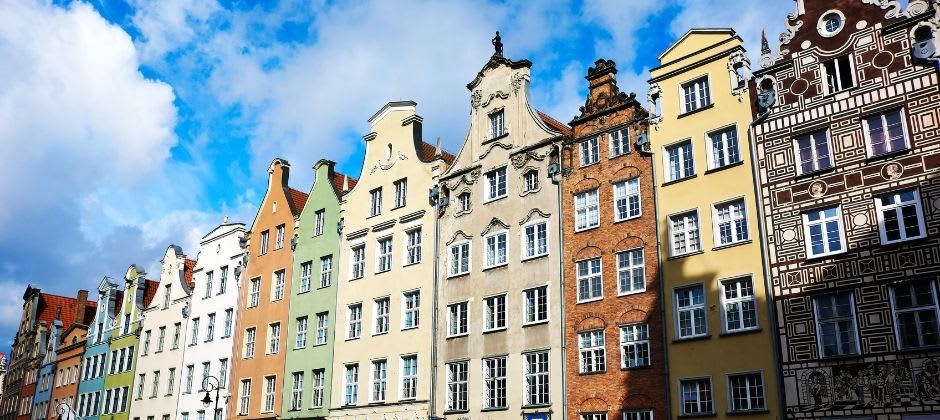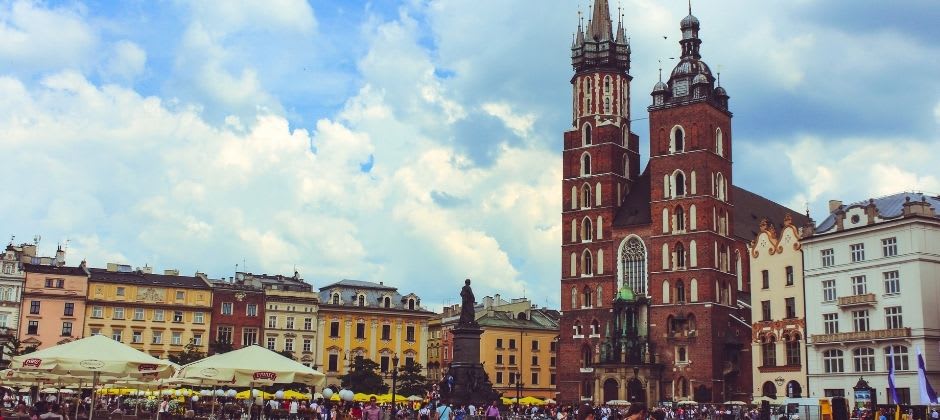Study in Poland: Language & Culture in Poland
Poland is a country with a thousand-year history and strong bonds to traditions, keeping its cultural heritage intact despite the effects of World War II. The Polish culture is an important part of the western civilization, contributing significantly in the areas of arts, music, philosophy, literature and science.

Poland is a country with a thousand-year history and strong bonds to traditions, keeping its cultural heritage intact despite the effects of World War II. The Polish culture is an important part of the western civilization, contributing significantly in the areas of arts, music, philosophy, literature and science.
The cultural history of Poland traces back to the Middle Ages. Contemporary Poland is surrounded by the values of honesty, faith (as a very religious nation), respect and focus on family.

If you are a history fan and want to enrich your knowledge about the country’s past, a visit to the Auschwitz Concentration Camp and the Wieliczka and Bochnia Salt Mines is a must.
Living in Poland will make you feel like you are living in a fairytale! Where to begin? The striking underground cathedrals of Gdansk, the charming winter wonderland of Zakopane, the renaissance city of Zamość or the historical center of Krakow, Poland’s second largest city? The options are endless and you will definitely enjoy travelling through Polish cities, exploring their beauty and unique identity.
The Polish nation is a progressive, hard-working nation, paying special attention to hospitality, as indicated by the Polish saying ‘’A guest in the house, God in the house.’’ Some famous people that the Poles are proud of include Frederik Chopin, Pope John Paul II, Marie Curie, John III Sobieski, Robert Lewandowski, Wisława Szymborska and Roman Polanski.
Polish Cuisine
Traditional Polish cuisine is a calorie bomb, but once you try it, it would be difficult to resist! The Polish cuisine, which shares common characteristics with the German one, uses tons of spices and is primarily based on meat, bread, mushrooms, vegetables, beetroot, pickles, sauerkraut and sausages.
The first thing that comes to mind when talking about Polish cuisine is undoubtedly the Polish pierogies. Pierogies are filled dumplings with multiple fillings like meat, vegetables, cheese or fruits. Other favorite dishes include zurek, kotlet schabowy, bigos, oscypek and zapiekanka, the big delicious street food sandwiches!
Traditional Polish beverages include mead, beer and of course, Polish vodka. In fact, some sources claim that the first vodka production took place in Poland in the 8th century! Vodka is largely consumed in Poland and there are endless flavors and brands to choose from, starting with the award winning Wyborowa Klasyczna to the luxury Chopin Rye, well known Belvedere and classic Sobieski Vodka.
Polish Language
Poland ranks 16th in the EF English Proficiency Index and therefore, you won’t have any problem communicating in English effectively while in Poland. On the other hand, learning a foreign language comes with multiple benefits and will get you out of your comfort zone, enabling you at the same time to familiarize yourself with the Polish culture.
Polish is considered one of the hardest languages to learn, but why not be brave and try it out? It will be highly appreciated by Polish people who will definitely be impressed! Polish is a West Slavic language spoken by more than 50 million people and is the sixth most spoken language of the European Union. The Polish alphabet consists of 32 letters and the language’s difficulty is based on the complex pronunciation, gender system, verbs or cases that are hard to master.
If you learn the Polish language, you will have the advantage of better understanding the fundamentals of Czech, Slovak, Serbian or Ukrainian languages as well since they share common linguistic features. Interested?
The University of Warsaw promotes Polish language learning and prepares students through short or long-term courses for language examinations at any level. In addition, if you would like to test yourself to the highest level, then you should consider taking the Certificate Examinations in Polish as a Foreign Language (Egzaminy Certyfikatowe z Języka Polskiego jako Obcego).
Learn more about education in Poland:
Study in Poland - Overview
Over 45,000 international students choose Poland as their study abroad destination every year. Click here to learn why.
Education System
Want to learn about how the higher education system works in Poland? Both public and private universities follow the objectives and the standards set by the Bologna process.
Student Visas
Do you need a visa to enter Poland to study? Learn more about the student visa process, and what you need to enter the country, depending on your citizen status.
Housing & Living Costs
Housing and cost of living in Poland are relatively cheap, especially when compared with other countries in Europe.
Tuition Fees & Scholarships
Tuition fees for degree programs in Poland vary but education for international students is still far lower than in many other European countries.
Application Process
Entry requirements in Poland vary from university to university. Here you can find more information about the application process for both EU and non-EU citizens.
Programs
Ready to look at education in Poland? Use our search engine to find and compare top programs in Poland today!

Keystone Team
Author
The Keystone Team is comprised of experienced educators and advisors dedicated to providing valuable resources and advice to students all over the world.